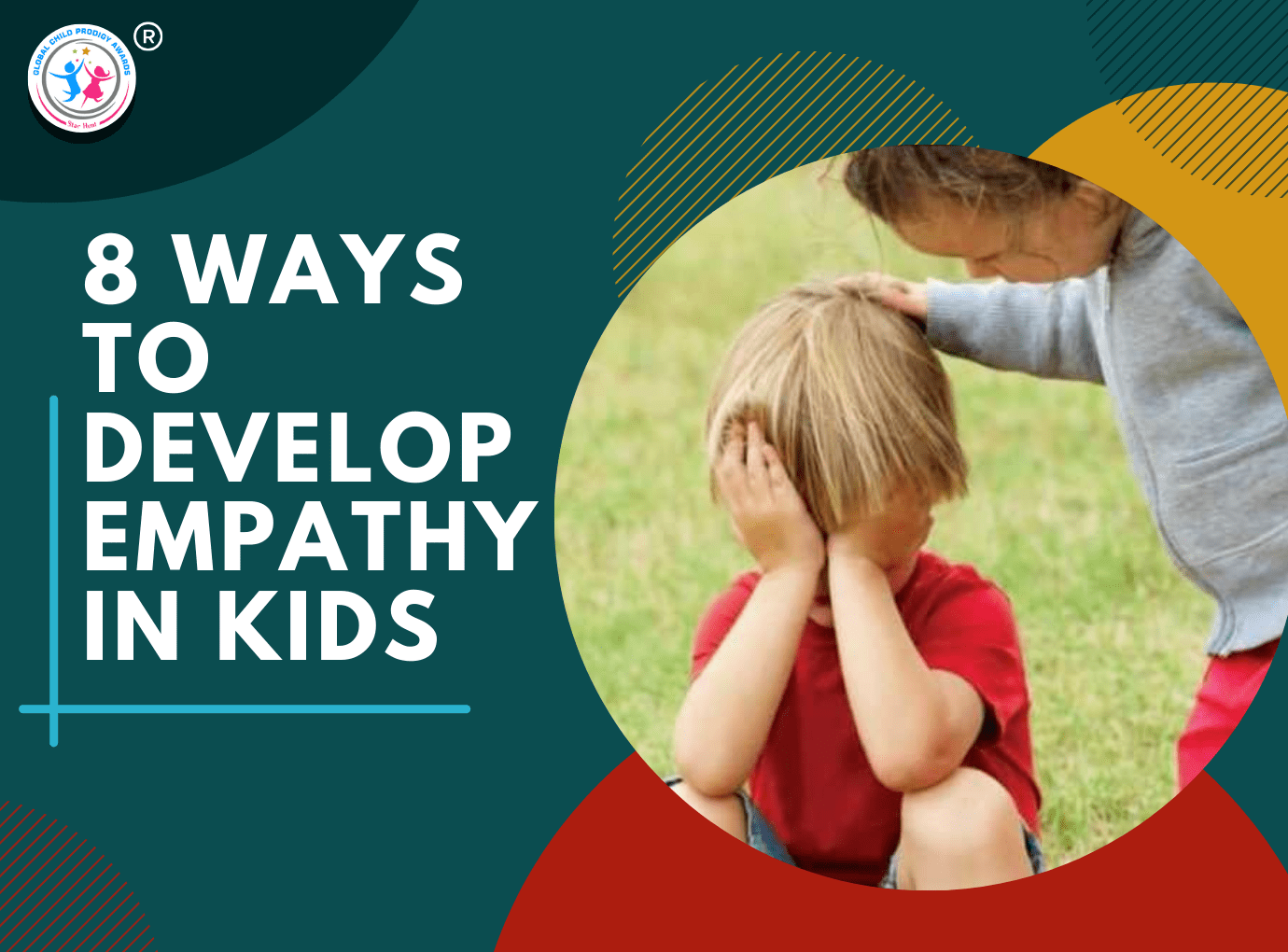Empathy is the ability to understand and share the feelings of another. It requires to recognize different emotions and understand the differences between the senses for a young child. Empathy in kids helps to know what that emotion feels like themselves and then understand when someone else feels that same way.
Empathy is not only a way of thinking but a behavior. For kids to be seen as empathetic by others, they need to learn to show that they understand and share another’s feelings.
Let’s look at the eight ways to help your child be more empathetic:
1. It’s okay to express all emotions.

This is the most important and toughest one. It can be especially tough for parents who have difficulty expressing their own negative feelings. The parents who minimized their emotions as children or even outright did not allow them to be said find it difficult to instill empathy in kids.
The thing is, if your child is not allowed to express negative emotions healthily, then he/she will come to learn that they must mistrust or even hide these feelings at all costs. A child who believes that negative feelings are unacceptable will never understand when someone else is expressing these feelings, nor will they be able to, or want to, act to comfort them – the crux of empathy.
2.Empathize with your child and model empathy for others.
What you do and say is critical. Children learn empathy both from watching us and from experiencing our compassion for them. Empathy in kids is also evoked by watching those we notice and appreciate.
When we empathize with our children, they develop trusting, secure attachments with us. Those attachments are critical to their desire to adopt our values and model our behavior, building their empathy for others.
Empathizing with our children takes many forms. It includes tuning in to their physical and emotional needs, understanding and respecting their individual personalities, taking a genuine interest in their lives, and guiding them toward activities that reflect an experience of the kind of people they are and the things they enjoy.
3.Make caring for others a priority and set high ethical expectations.

If children value others’ perspectives and show compassion for them, they must hear from their parents that caring about others is a top priority and that it is just as important as their own happiness. Even though most parents say that raising caring children is a top priority, often, children don’t hear that message.
4.Provide opportunities for children to practice empathy.
Children are born with the capacity for empathy, but it needs to be nurtured throughout their lives. Learning empathy is in certain respects like learning a language or a sport. It requires practice and guidance. Regularly considering other people’s perspectives and circumstances help make empathy a natural reflex and, through trial and error, helps children get better at tuning into others’ feelings and attitudes.
5.Expand your child’s circle of concern.
We often talk about empathy as a quantity. For example, we speak of children as having a lot of or a little kindness or lack empathy entirely. Yet, the issue often isn’t whether children can empathize or how much sympathy they have. It is who they have compassion for. For most of us, it’s not hard to have empathy for our family members and close friends. It’s also human nature to have a heart for people who are like us in some way. But the real issue is whether children (and adults) have empathy outside that circle. As parents and caretakers, it’s not only vital that we model appreciation for many types of people. It’s essential that we guide children in understanding and caring for many kinds of people who are different from them and may face challenges other than their own challenges.
6.Help children develop self-control and manage feelings effectively.
Often when children don’t express empathy, it’s not because they don’t have it. It’s because some feeling or image is blocking their compassion. Often the ability to care for others is overwhelmed, for example, by anger, shame, envy, or other negative feelings. Helping children manage these negative feelings and stereotypes and prejudices about others are often what “releases” their empathy.
7.Believe that your child is capable of being kind.

If you treat your kid as if he’s always up to no good, soon he will be up to no good. But if you assume that he does want to help and is concerned about other people’s needs, he will tend to live up to those expectations.
8.Acknowledge kindness.
Be sure to show your child that you notice when someone does something nice. For example, if someone slows down to let you exit a parking lot at a busy intersection, say, “It was really nice of that driver to let me out.” Likewise, if your own child treats someone nicely, be sure to acknowledge and praise her effort.
The Global Child Prodigy wishes you Happy Parenting.
Also read: Five safety rules for kids

Content creator at GCPA with 2 years of experience in content writing | Feel free to contact me at team@139.84.133.140

